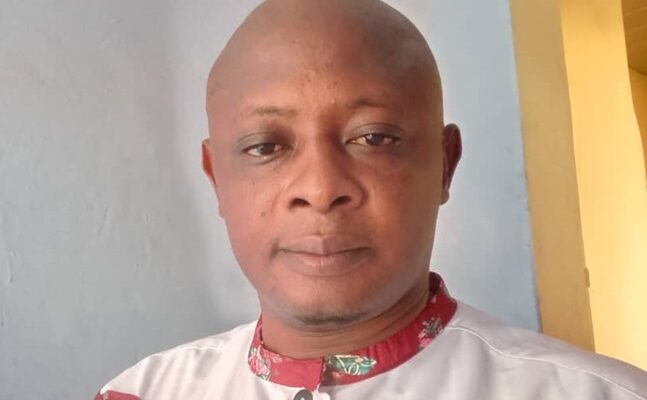It is not madness, yet it’s not normal. They say he’s depressed, but his eyes burn like a man in chains. She laughs at the ceiling and screams at the mirror. The doctor calls it a disorder; the pastor calls it possession. But what if both are right? What if the mind is not just a battlefield of neurons but also a theatre of spirits?
In Africa—particularly in Nigeria—a new awareness is rising from ancient wells. It is not modern science that holds the loudest mic in our streets but a gospel of fire. Deliverance ministries are growing like wild yam after the rains. Although some are dying seriously. But Churches are full, not because people lack medication, but because they seek mercy that no drug can buy. “I was hearing voices,” one woman testifies. “But when the man of God laid hands on me, something left me and I became free.” In places where psychiatric hospitals are few, prayer mountains become clinics of last hope.
This is not a rebellion against medicine, but a protest against neglecting the unseen. The mind, according to Apostle Ayo Babalola, “is the gate through which heaven or hell enters a man.” If that gate is open to demonic invasion, then no amount of tablets can keep torment at bay. As the Bible says, “Be transformed by the renewing of your mind” (Romans 12:2), not merely by treating the mind, but by reclaiming it through truth and Spirit.
A young boy in Kogi State was tied for three days because he barked like a dog. Neighbours said it was madness. But the local pastor said, “It is not mental illness. It is a barking spirit.” Three days of fasting, anointing oil, and midnight intercession later, the boy was calm—no longer growling. That testimony spread faster than paracetamol. His freedom became a revival.
Still, not all who shout “deliverance” are innocent. Some exploit pain for profit. Some pour olive oil on schizophrenia and call it a demon. Others shout at anxiety and ignore childhood trauma. But does this mean all deliverance is a scam? No. Just as fake drugs do not cancel medicine, fake or career prophets do not cancel divine healing.
The Igala say, “A child whose mother did not consult the gods will cry till the grave.” This proverb is not witchcraft; it is wisdom. It means if you ignore the spiritual side of a problem, you may die struggling in the physical. Painfully, alot of people secretly wakes up every morning feeling deep suicidal feels. They have tried medical homes and even some deliverance ministries yet this monster devoid solutions. Our ancestors believed the unseen ruled the seen. Today, many young people—disillusioned by pills and psychology—are returning to that old truth, now discovered in Christian light.
The spirit of suicide is real. The thoughts that say, “End it all,” are not just biological. They are whispers from the pit. Evangelist Yinka Yusuf once cried out in a crusade, “Some of you are not mad—you are under siege!” That siege is not from lack of education but from spiritual warfare. “We wrestle not against flesh and blood…” (Ephesians 6:12). No degree can explain a man who hears voices telling him to jump into a well. No textbook can interpret why a girl wants to drink bleach after a breakup. But a spirit of heaviness can.
Dr. Paul Enenche, a trained medical doctor turned pastor, says, “Many things the world calls psychological are actually spiritual.” He tells stories of patients who danced at midnight, spoke strange tongues, or developed superhuman strength. Not all cases are mental illness—some are spiritual arrests.
Yet this message is not new. It’s simply been buried under Western noise. That’s why I wrote Final Breath (Imi Otitala): The End-Time Epidemic Satan Doesn’t Want the Church to Talk About.* This powerful e-book dives deeper into the rising epidemic of suicidal thoughts, mental strongholds, and spiritual bondage sweeping through this generation. If this article has stirred something in your heart, then the book will open your eyes wider. To read further on this issue, kindly buy my new e-book—it is both a cry and a cure.
Some psychiatrists are now collaborating with churches, realizing that a full recovery may require both medicine and intercession. This bridge is necessary. The African mind cannot be saved by foreign pills alone. It must be healed through community, Scripture, and fire. One leg in the clinic, one leg at the altar.
When Prophet TB Joshua was alive, many came from Europe and Asia to his church—not because they lacked doctors but because they sensed something more. Something ancient. Something holy. People crawled in and walked out. They wept, vomited, fell under power, and later testified, “My mind is back.”
Mental health is now on the ballot box of African spirituality. No longer do we whisper about it. We shout. But our shouting must be wise. Not all madness is demonic. But not all madness is chemical. Some minds are broken not by trauma, but by transgression. Some are not mentally sick—they are spiritually contaminated.
To ignore the spirit life is to treat the symptom and leave the source. The real healing of the African mind will not come from medication alone. It will come when prayer, psychiatry, Scripture, and Spirit sit on the same table. The time is now. Enough of burying the mentally afflicted like dogs in unmarked graves. Enough of labelling what we don’t understand. Let’s fight for our minds with light, not just logic.
Because when the mind is free, the man can rise. When the soul is unchained, the city rejoices. And when the Spirit of God takes over the mind of a man, demons flee, depression bows, and destiny speaks again.
– Inah Boniface Ocholi writes from Ayah – Igalamela/Odolu LGA, Kogi state.
08152094428 (SMS Only)




